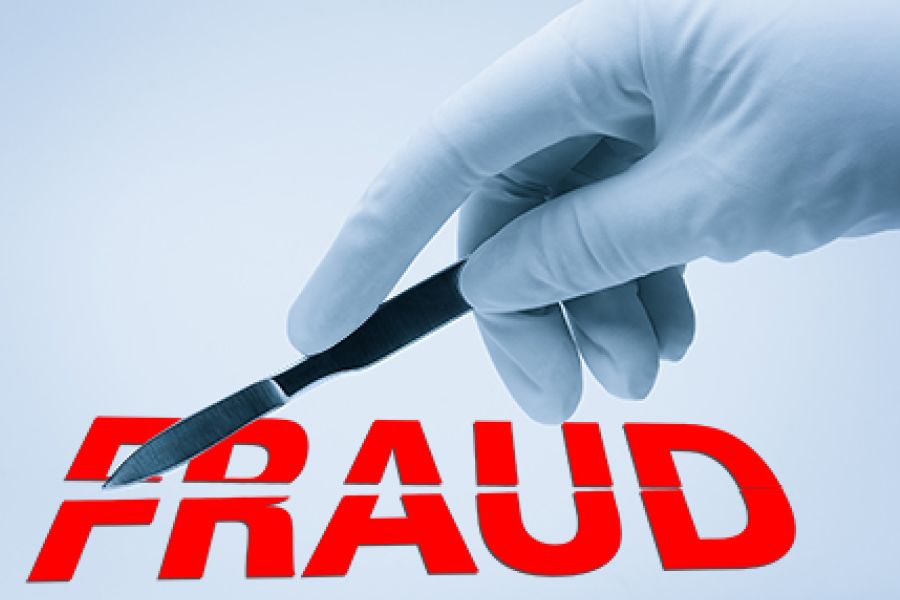Job applicants aren’t always honest on their résumés. As such, it's critical that you uncover bogus résumé claims. If you don’t investigate suspicious claims, you might end up hiring an unqualified and unethical employee — which could lead to financial, productivity and legal liability issues. The résumé fibber might also be more likely to commit occupational fraud. But how to uncover bogus résumé claims? Here are the three most common résumé falsifications. (1) Deceptive dates Whether to gloss over a termination, a period of job hopping or time spent out of the workforce, some job seekers “adjust” dates to make their employment history seem more consistent. Look closely at résumés that state employment dates in years, not months. Say an applicant claims she worked at her last job...

While the number of plug-in electric vehicles (EVs) is still small compared with other cars on the road, it’s growing. This is especially true in certain parts of the country. If you’re interested in purchasing an electric or hybrid vehicle, you may be eligible for tax savings for electric vehicles. A federal income tax credit is available of up to $7,500. (Depending on where you live, there may also be state tax breaks and other incentives.) However, the federal tax credit is subject to a complex phaseout rule that may reduce or eliminate the tax break. The phaseout is based on how many sales are made by a given manufacturer. The vehicles of two manufacturers have already begun to be phased out. That means they now...
Employee vs Independent Contractor is an age old question. Many employers prefer to classify workers as independent contractors to lower costs, even if it means having less control over a worker’s day-to-day activities. But the government is on the lookout for businesses that classify workers as independent contractors simply to reduce taxes or avoid their employee benefit obligations. Why it matters When your business classifies a worker as an employee, you generally must withhold federal income tax and the employee’s share of Social Security and Medicare taxes from his or her wages. Your business must then pay the employer’s share of these taxes, pay federal unemployment tax, file federal payroll tax returns and follow other burdensome IRS and U.S. Department of Labor rules. You may also have to...
Life insurance has long provided a source of liquidity to pay estate taxes and other expenses. But, with the estate tax exemption currently set at an inflation-adjusted $10 million ($11.40 million for 2019), estate taxes are no longer a concern for many families. Nonetheless, life insurance offers many benefits for nontaxable estates. But who should own the policy? There are 4 types of life insurance owners. If you own life insurance policies at your death, the proceeds will be included in your taxable estate. Ownership is usually determined by several factors, including who has the right to name the beneficiaries of the proceeds. If estate taxes are a concern, the way around this problem is to not own the policies when you die. However, don’t automatically...
When people hear the term “forensic science,” they usually think “CSI.” What comes to mind when you hear the term “forensic accounting”? Similar to forensic scientists offering opinions about scientific matters, forensic accountants may be called on to investigate and serve as financial experts in commercial litigation. Here’s how. Who forensic accountants are Forensic accountants specialize in conducting fraud audits and investigations to detect irregularities and troubling trends, looking for both telltale and subtle signs of white collar crime. Certified fraud examiners (CFEs) are specially trained in fraud discovery, recognition, documentation and prevention. They’re also generally knowledgeable about human behavioral factors and motivations that contribute to the commission of fraud, such as the ability to rationalize fraudulent conduct. Often, forensic accountants are retained to detect misrepresentations of financial...
Preventing fraud in auto dealerships requires a strong internal control system. This will serve to prevent occupational fraud from cutting into your auto dealership’s profits and generating negative publicity. And effective controls start with current and accurate financial statements. Preventing fraud in auto dealerships starts in accounting One sign of weak internal controls is an accounting department that fails to generate financials until two or more weeks after month’s end. Accounting should post transactions daily, including new and used vehicle sales, repair orders, invoice payments, payroll and cash receipts. By 1 p.m. on any given day, you should have access to real-time checkbook balances and other accounting information effective as of 5 p.m. the day before. That way, you might be able to catch the first signs of...
Have you recently started a new business? Or are you contemplating starting one? Launching a new venture is a hectic, exciting time. Before you even open the doors, you generally have to spend a lot of money on new business expenses. You may have to train workers and pay for rent, utilities, marketing and more. Entrepreneurs are often unaware that many expenses incurred by start-ups can’t be deducted right away. The way you handle some of your initial expenses can make a large difference in your tax bill. Key points on how new business expenses are handled When starting or planning a new enterprise, keep these factors in mind: Start-up costs include those incurred or paid while creating an active trade or business — or investigating the creation...
In the course of operating your business, you probably spend time and money “wining and dining” current or potential customers, vendors and employees. Is deducting business meals still possible? The rules changed under the Tax Cuts and Jobs Act (TCJA), but you can still claim some valuable write-offs. No more entertainment deductions One of the biggest changes is that you can no longer deduct most business-related entertainment expenses. Beginning in 2018, the TCJA disallows deductions for entertainment expenses, including those for sports events, theater productions, golf outings and fishing trips. Deducting business meals still allowed You can still deduct 50% of the cost of food and beverages for meals conducted with business associates. However, you need to follow three basic rules in order to prove that your expenses are...
Taxation of divorcing business owners add complications to an already stressful time. Your marital property will include all or part of your business ownership interest . . . one of your biggest personal assets. Transferring property tax-free You and your ex-spouse can generally divide most assets, without any federal income or gift tax consequences. When an asset falls under this tax-free transfer rule, the spouse who receives the asset takes over its existing tax basis (for tax gain or loss purposes). The receiving spouse also takes over the asset's existing holding period (for short-term or long-term holding period purposes). Example Under the terms of your divorce agreement, you give your house to your spouse in exchange for keeping 100% of the stock in your business. That asset swap would...
News of commercial database hackings may seem commonplace in 2019. But while many of these stories focus on hacked bank and credit card accounts, 401k plan sponsors and participants probably don’t realize that their plan assets also are at risk from 401k Hackers. Employers who offer 401k plans to their employees need to take precautions against identity theft. Part of this is educating participants. Role of sponsors If your organization sponsors a 401k plan, it’s essential that you assess plan service providers’ protection systems and policies. Most providers carry cyberfraud insurance that they extend to plan participants. But there may be limits to this protection if, for example, the provider determines that you (the sponsor) or employees (participants) opened the door to a security breach. Your plan’s documents may...











